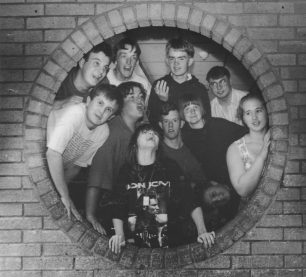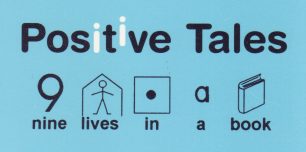Positive Tales
Working with people with special needs
People with learning and physical difficulties rarely get the chance to tell their stories. Living Archive got the opportunity to listen to them following a request for help from the Open University’s School of Health and Social Welfare which was planning to produce a new course to deal with the issues of concern to people with learning diffuculties. They asked Living Archive to pilot some life story work in order to involve future students on their new course in similar projects. In April 1994 we co-hosted a national conference at which this work was described. Later in the same year the Living Archive Project won the Arts Council/British Gas Working For Cities Community Arts Award and we decided to use the prize money and additional funding from Milton Keynes Community Foundation to develop this life story work.
Recruiting the interviewees
Sue Westell, who had been involved in the pilot work, was appointed as the Project Worker. She approached Milton Keynes College, which runs a special programme for people with learning difficulties. She also contacted Day Centres and the local Social Services team to advertise the start of the new project.
The rules were simple. Each person was interviewed by Sue on a one-to-one basis. There was to be complete confidentiality until each author had decided that they were happy to share their recorded stories with other people. Throughout, the authors have retained control over editing their stories and making decisions as to how they should be published.
The doctor said to my Mum that I was going to be a cabbage in a wheelchair. I couldn’t talk. That is my memory.
Editing the stories
Sue spent up to ten two hour sessions with each person recording not only their memories but also their thoughts about life. After each session she transcribed the recording she’d made. She read the transcription back at the next session and the editing process began. Some memories, on reflection, were judged too painful or personal to share with the world at large. The editing was a shared task, only occasionally was the order of the spoken words rearranged to clarify the story. In this way, as you read each story, you should hear the voice of the author telling it to you.
Deciding on the product
As the recording process came to an end, a series of editorial meetings were held with all the authors meeting together. How should the stories be presented? A tape, a video, a book? the unanimous decision taken by the authors was that their stories should be presented as a book. Choices were made about typefaces and format so that the book would be as easy to handle and read as possible. We were introduced to Widgit’s Rebus sign language and it was agreed that we should incorporate this in parts of the text.
Deciding on a title
Together the group discussed the title for each story and for the collection. Cheryl’s comment that she wanted people to see the positive side of disability clinched the title for the book – Positive Tales







No Comments
Add a comment about this page